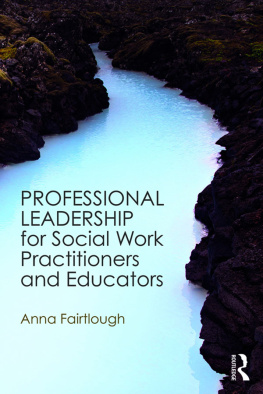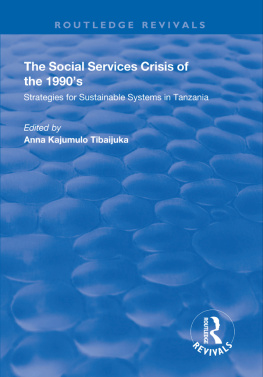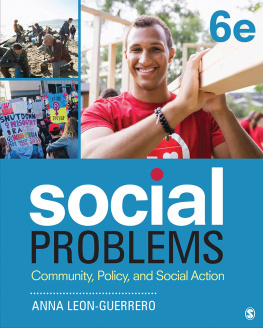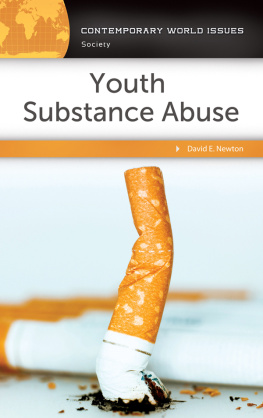Social Work with
Substance Users
SAGE has been part of the global academic community since 1965, supporting high quality research and learning that transforms society and our understanding of individuals, groups, and cultures. SAGE is the independent, innovative, natural home for authors, editors and societies who share our commitment and passion for the social sciences.
Find out more at: www.sagepublications.com
Social Work with
Substance Users
Anna Nelson
Anna Nelson 2012
First published 2012
Apart from any fair dealing for the purposes of research or private study, or criticism or review, as permitted under the Copyright, Designs and Patents Act, 1988, this publication may be reproduced, stored or transmitted in any form, or by any means, only with the prior permission in writing of the publishers, or in the case of reprographic reproduction, in accordance with the terms of licences issued by the Copyright Licensing Agency. Enquiries concerning reproduction outside those terms should be sent to the publishers.
SAGE Publications Ltd
1 Olivers Yard
55 City Road
London EC1Y 1SP
SAGE Publications Inc.
2455 Teller Road
Thousand Oaks, California 91320
SAGE Publications India Pvt Ltd
B 1/I 1 Mohan Cooperative Industrial Area
Mathura Road
New Delhi 110 044
SAGE Publications Asia-Pacific Pte Ltd
33 Pekin Street #02-01
Far East Square
Singapore 048763
Library of Congress Control Number: 2010941766
British Library Cataloguing in Publication data
A catalogue record for this book is available from the British Library
ISBN 978-1-84860-221-2
ISBN 978-1-84860-222-9 (pbk)
Typeset by C&M Digitals (P) Ltd, Chennai, India
Printed by MPG Books Group, Bodmin, Cornwall
Printed on paper from sustainable resources
For Ben and Trilby
Contents
Acknowledgements
Writing this book has been a huge undertaking for me, but one that, for all the sacrifices, has been remarkably fulfilling. First and foremost, my special thanks to all my social work service users who have faced problematic substance use. Seeing your beauty in the face of adversity inspired me to write this book. Thanks to all my friends and family whose unfaltering encouragement helped me along the way. Due special thanks is Trish Hafford-Letchfield, an amazing woman, who had faith in my ability and role-modelled mind-blowing academic ability, coupled with incredible energy, integrity, support and friendship throughout the project. Thanks to Sage and my original editor Susannah Trefgarne for believing in me from the start, as well as to Zo Elliott-Fawcett and Emma Milman who helped me get the job done with practical support and encouragement right to the end. Last but by no means least, my special thanks, love and hugs to my husband Ben and our daughter Trilby, who will now have their wife and mummy back.
Praise for the book
Writing in clear, accessible language, this excellent book will be useful for students and practitioners.
Rachel Fyson, Centre for Social Work, University of Nottingham
Social workers are often seen to fail substance users despite extensive evidence on the scale and impact of these issues on most of those they work with. Nelsons comprehensive and detailed text is a timely and welcome contribution to an area of practice where there is surprisingly little research and literature. Written by someone with substantial policy knowledge and practice expertise in the field, her approach will help to inspire social workers confidence by drawing on common discourses about substance users and working to embed a partnership approach. Highly recommended for both pre- and post qualified practitioners!
Trish Hafford-Letchfield, Teaching fellow, Interprofessional Learning, Middlesex University
Introduction
The fact that so many social workers feel so poorly prepared for working with substance use issues, that so many of their clients experience difficulties related to drug or alcohol use and that social work courses tend to provide so little training on the issue is inexcusable. (Galvani and Forrester, 2008: 5)
Whilst this book is necessarily concerned with our response to and support of people who use substances problematically, it must not be assumed that all substance use is, or will become problematic. Where substance use is problematic, however, it is recognised as a problem across a range of social work settings and service user groups. Problematic substance use can and does exacerbate problems in all areas of social work practice, such as increasing the likelihood of child neglect and destabilising mental health problems. There have been ongoing calls from the Advisory Council on the Misuse of Drugs (ACMD) (2003), academics (Ahmed, 2007; Galvani, 2007; Galvani and Forrester, 2008), drug and alcohol charities (Addaction, 2007) and stakeholders (Bootle, 2007), for social work education to improve information given to students about problematic substance use. Not all social workers are necessarily required to be substance misuse specialists; however, they are expected to be able to work effectively with services users who may be using substances problematically, regardless of the social work setting that they are currently practising in.
Working with problematic substance use has to become a core theme underpinning academic social work programmes because it so often plays a role in the lives of individuals and families who access social work services. To this end, Galvani and Forrester (2009) have developed a Social Policy and Social Work Subject Centre (SWAP) learning and teaching guide Social Work and Substance Use: Teaching the Basics aimed at supporting social work lecturers and tutors teaching about problematic substance use to their social work students. It is vital that any social work academic seeking to teach about problematic substance use uses this guide coupled with a text such as this.
How to use this book
The book is set out in four separate parts, with introductions to each part, summaries at the end of each chapter, questions for the reader to reflect on and relevant case studies. The reflective questions at the end of each chapter challenge the reader to think about and consider each chapter in relation to their thoughts, feelings and attitudes as well as their own direct social work practice. The case study examples provide valuable insight into how social workers might acknowledge and work with problematic substance use in each of their practice settings.
In recognition of the need for students to be more aware of problematic substance use in their social work practice, this book is aimed first and foremost at social work students; however, it is also very useful for qualified social workers in a variety of settings. In contrast to the bureaucratic and managerialist functions of social work, where social workers are often therapeutically deskilled while they concern themselves with budgets and risk, this book offers a number of meaningful models for therapeutic social work practice with service users who have problematic substance use.











